
In the modern era of the fourth Industrial Revolution, the tech industry has been developing
dynamically while conquering significant obstacles and threats. The rapid pace of
digitalization has not only created an intersection of knowledge, research, and innovation
but has also improved the quality of life and experiences across all fields.
New technologies are converging into more futuristic products, services, and processes to
have a greater commercial value with unprecedented developments in all the areas of
scientific advancements all over the world. This is a never-ending affair and will keep
evolving throughout the existence of humankind.
However, the global outbreak of coronavirus pandemic has had an inevitable impact on every
section of the business arena, making sustenance a game of survival of the best that adapts
to the current and future needs of the ever-changing market.
People and organizations all over the world have had to adjust to new ways of work and life,
which gave impetus to increased digital surge and spurred a shift to Remote Work or Work
from Home (WFH) culture.
The adoption of remote work had already been growing at a fast pace in the last few years
and the lockdown restrictions worldwide resulted in accelerating the process with work from
home policies set in record time across institutions of all types and industries all over
the world.
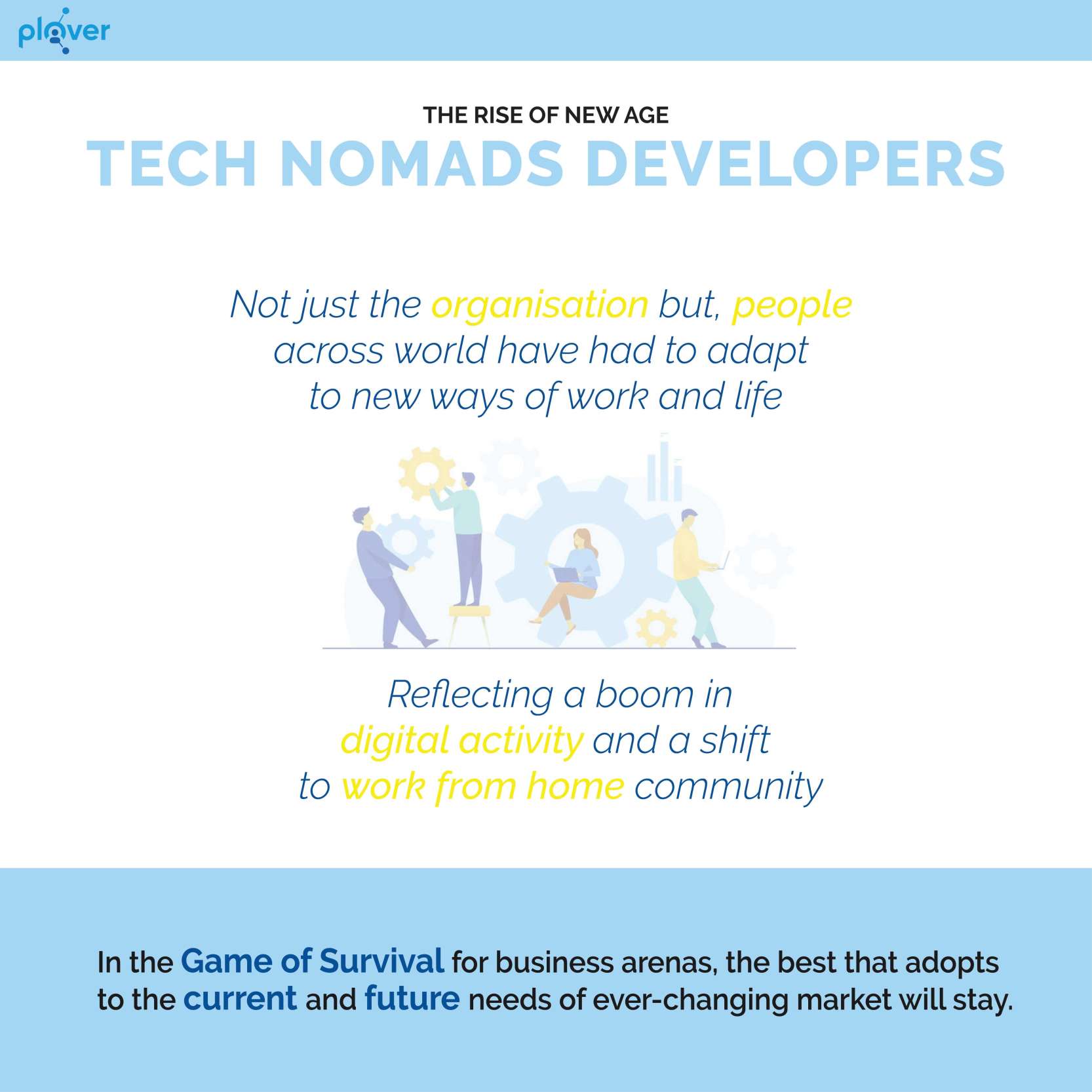
As more customers engage with businesses virtually, they demand more features and services.
With the consistent requirement for new software applications, the need for developers
continues to rise. This induced the demand for remote developers who bring new software to
market faster. From well-funded start-ups to tech giants and tech-focused consultancies,
almost all kinds of organisations require professional and experienced developers, making
remote working a gig among developers.
Developers already constitute the largest group of remote workers in the world. Given the
post-COVID-19 situation, more developers are shifting to a remote setup.
In a survey, 73% of technology professionals revealed that they think of remote work as an
essential perk. The rise of new ways of communicating has deeply impacted the work
environment.
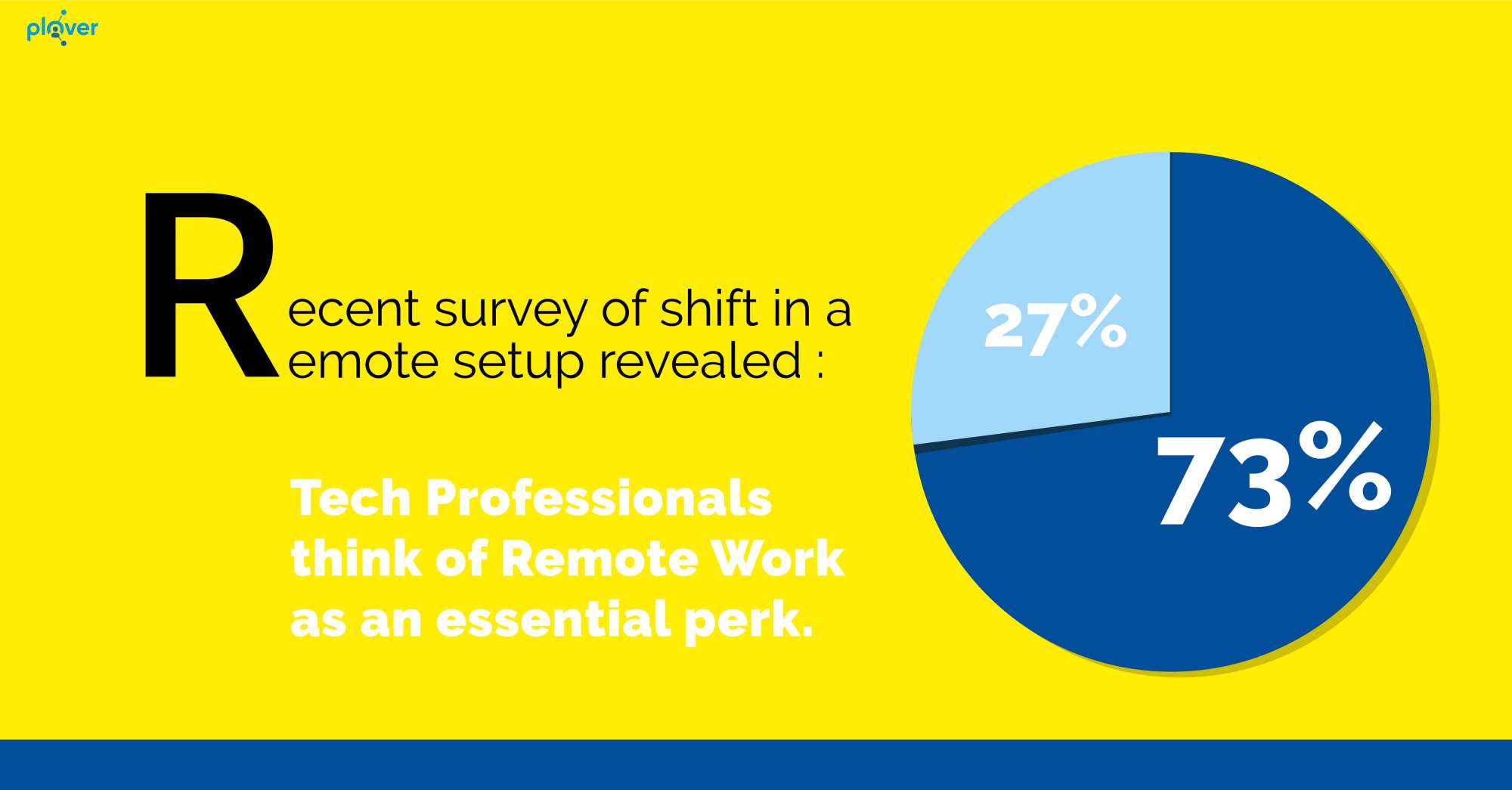
Coordinating virtually with developers has proved to be more productive as it is a critical
job role that requires high levels of concentration and focus since it involves working on
complex algorithms and mathematical software and does not require a lot of micromanagement.
Hence, a workspace where developers can work without too many interruptions and distractions
is often preferred.
There is an enormous pool of remote developers across the globe, with domain expertise and
experience. Recruiting the right tech talent is the biggest challenge faced by all, be it
small or medium businesses, or even large corporates. Initially, employers were somewhat
skeptical about hiring remote developers. However, over time, they realized that having
access to a diverse range of tech talent across the globe is a key competitive advantage in
the fast-paced tech market.
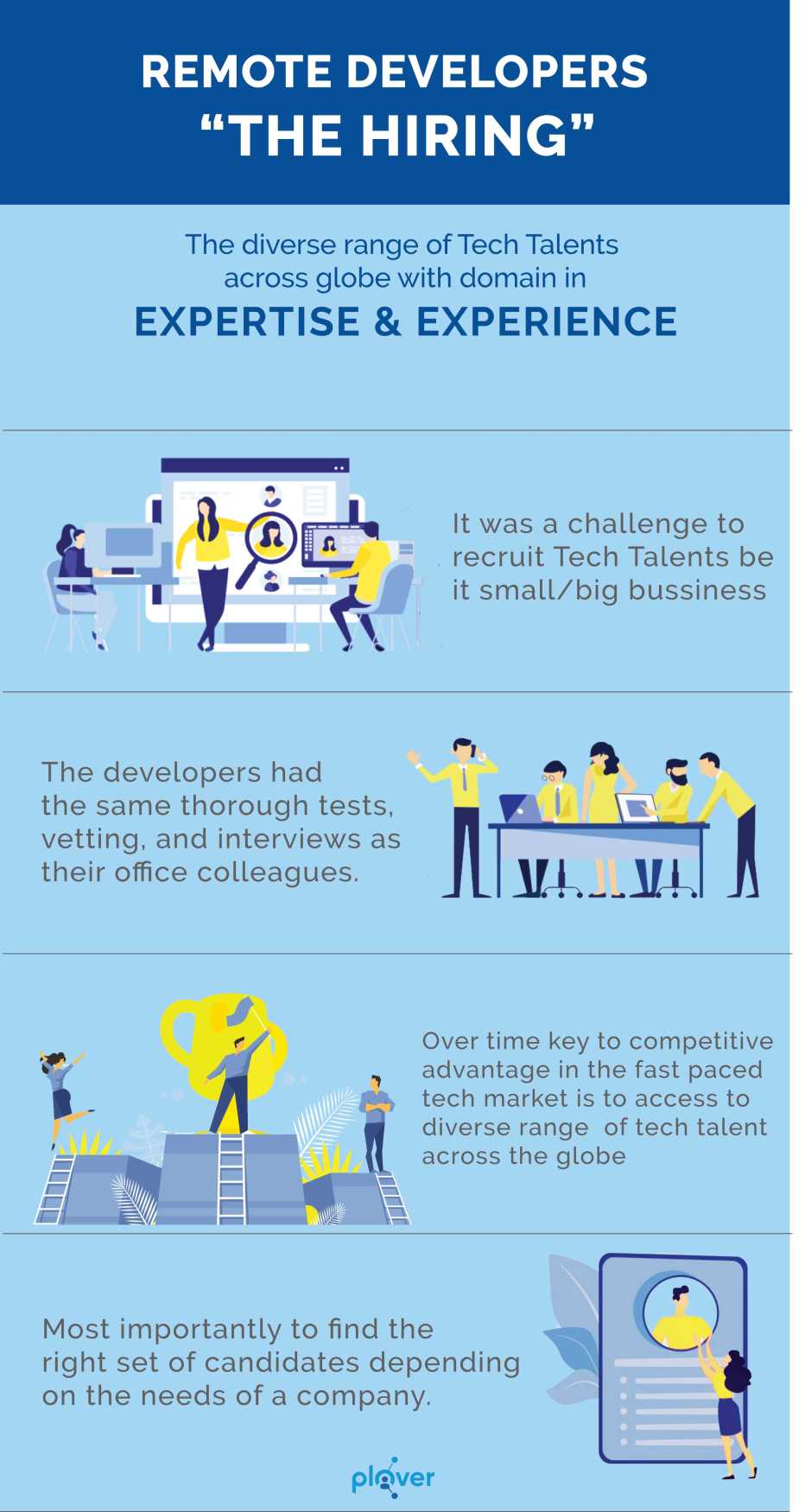
Remote working developers are put through the same rigorous tests, vetting, and interview process as colleagues in the office. It is important to find the right set of candidates depending on the needs of a company. Hence, conducting domain-centric aptitude & skill tests, interviews based on the company’s parameters to filter out the right fit not only eases the hiring process but also builds its brand name.
What to look for in remote workers?
What to look for in remote workers depends on the requirements, job description, project
needs, and culture of the company. There are certain traits that employers from all sectors
look for to find the right fit.
Here are a few traits that guarantee a higher chance of success in remote work:
Self-starter
This characteristic often attracts employers to hire remote developers. An individual who is motivated and goal-oriented does not need to be under the supervision of their superiors. A responsible employee who takes initiative and aligns with the needs of the employers adds value to the organization.
Communicative
When it comes to remote teams, it is crucial to establish a proper communication system. A lot of companies that focus on a remote workforce prefer employees who are confident and can communicate well within and outside the organization. This is because they have an easier time bonding with colleagues despite physical obstacles
Discipline
In a non-working environment filled with wonderful distractions, it is important to have someone, disciplined and dedicated to the work given to him/her. The willpower to resist these and keep your eyes on the ball is key in remote work. Here, references & guarantees play a pivotal role in determining the behavior of the employees.
Designated working area
Work from home has many perks, but it is also necessary to have a place that’s especially meant for work. It instills a sense of mental conditioning to complete the deliverables in the stipulated time frame and prevents distractions.
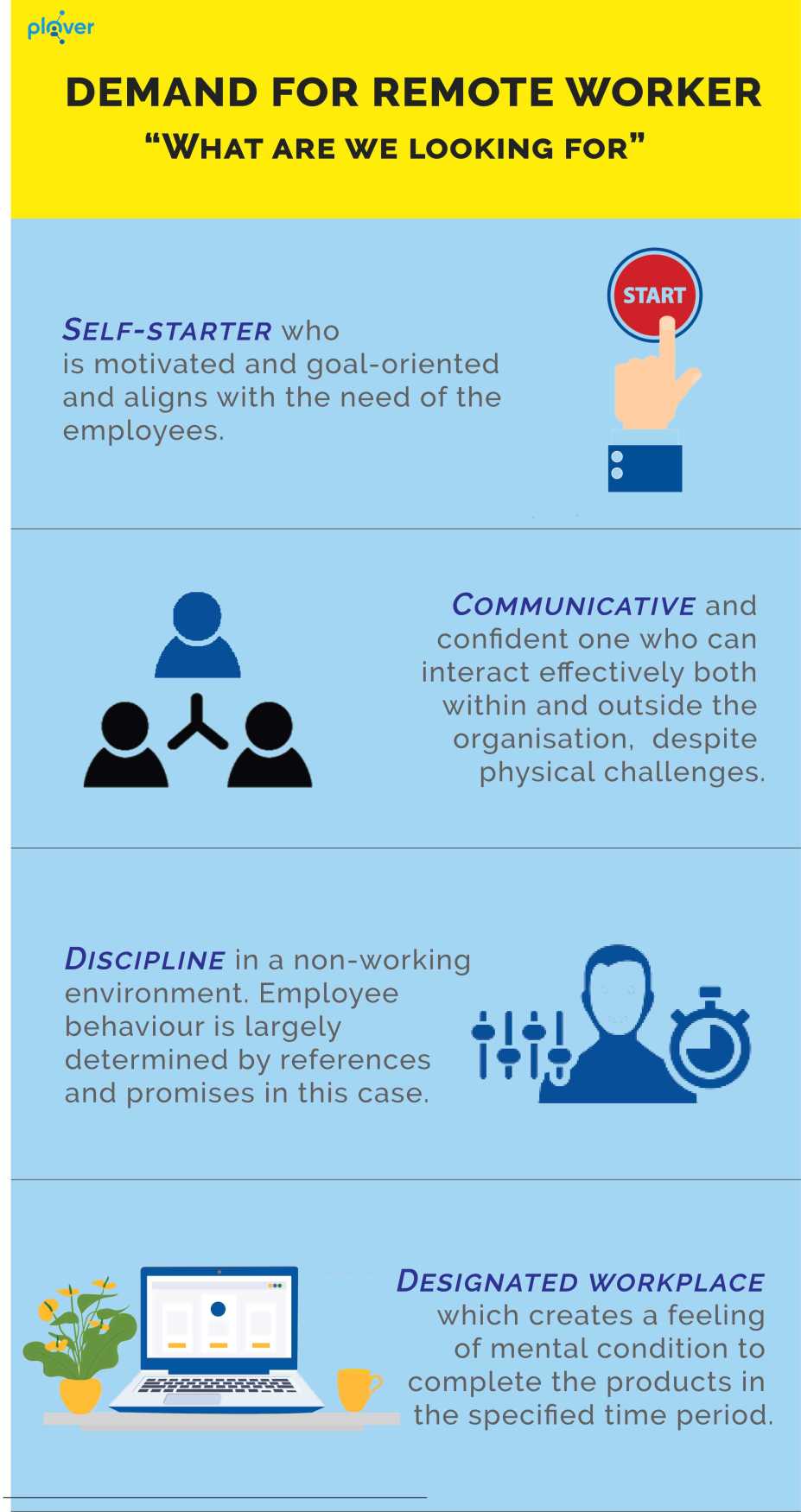
In the meantime, there arises a question of who would be a better fit for an organization: a
remote or a local developer?
As the world is moving forward and bidding goodbye to the traditional office culture,
companies and business organizations are becoming aware of the benefits of remote
developers. Following are a few out of many such benefits:
Access to the Global Workforce
Regional proximity used to be a barrier that restricted the selection of the right candidate when hiring a full-time employee, which limited the employers to the services available locally. However, with remote developers, employers can easily reach out to a better set of talents and more knowledgeable brains without any additional expenses. Hiring remote developers gave impetus to go for a professional and competent developer instead of settling for the average ones.
A Boost in Productivity
According to a survey conducted by the Harvard Business Review, employers consider remote employees more driven than those working in traditional office culture. After continuous monitoring of the remote workers over a duration of nine months, the survey report showed that the employees who work from home generated greater productivity.
Cost-Effective
Hiring virtual developers ensures saving a significant sum of money since they do not require office resources like the building, electricity, internet, etc. This element is a milestone for any company, even the start-ups with a lower budget. Remote teams in this situation are a competitive and cost-saving technique that is also able to increase the output.
Flexible Working Hours
Flexibility in working hours plays a pivotal role when it comes to increasing the efficiency of the workers. Remote developers operate under a strict time frame to ensure the best output and efficiency standard. In this way, the worker chooses the timing that better suits his / her lifestyle. On the other side, the managers too do not require to keep a strict eye on the working hours of the employee as long as he is getting his deliveries on time. Hence, both the employer and the employee benefit from the flexibility in working hours.
Increase in Employee Retention Rates
Remote employees enjoy a better work-life balance as well as a healthy lifestyle which leads to more job satisfaction. Therefore, they generate better productivity thereby, satisfying the employer which leads to greater retention rates.
Digital Marketing
In the post-pandemic period, it becomes crucial to have a digital presence to successfully run the business. Therefore, hiring remote developers will allow them to establish the process of digitization of the organization.
Reduce Travel Cost
In essence, working remotely means that one needn’t go to an office space. Instead, he/she has full freedom to choose where to work from. This reduces the expenses of both the employee and the organization as the latter can skip providing the employee with travel or visa cost.
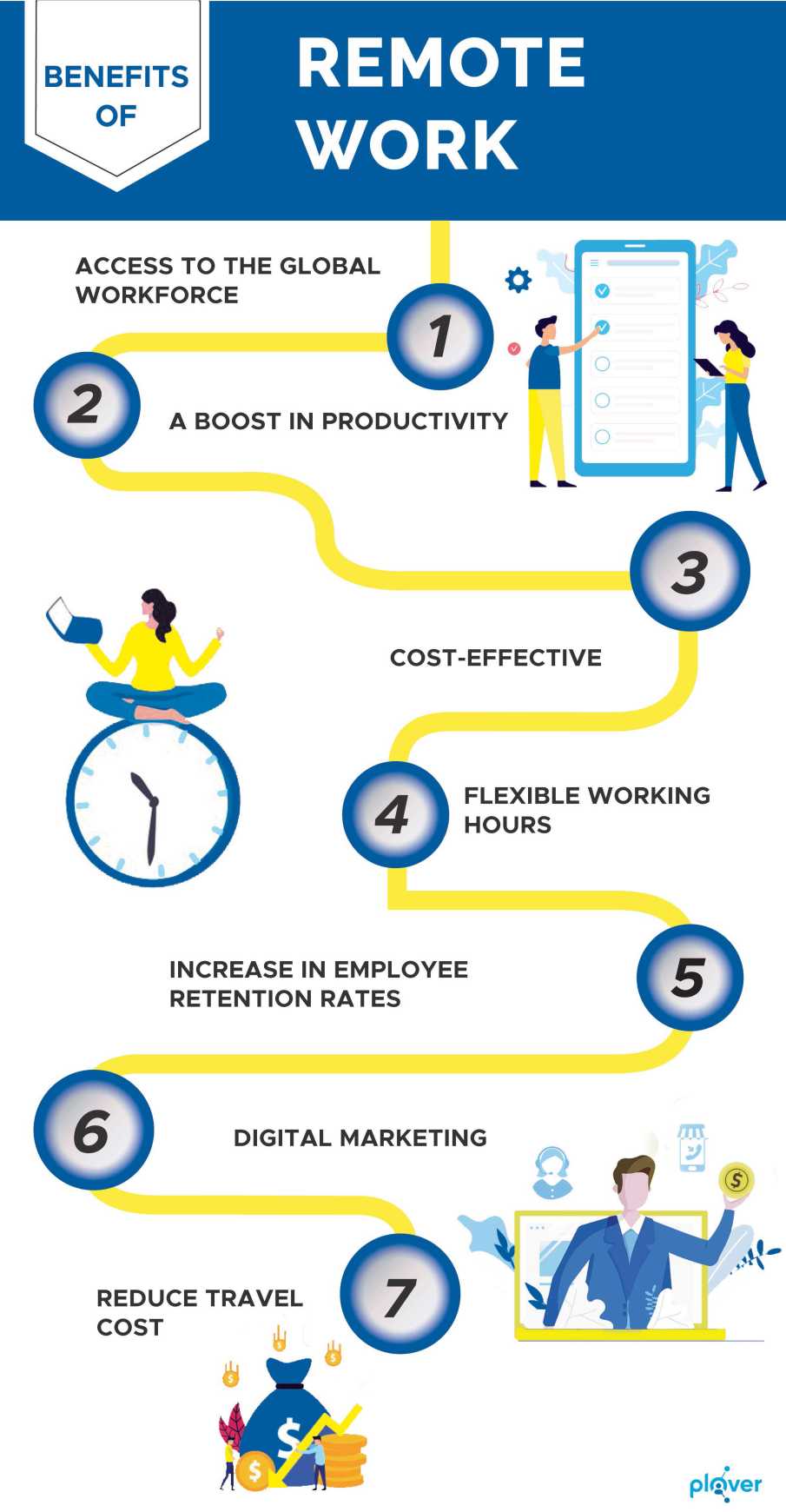
If you enjoyed this piece, we've crafted a related article delving into Exploring the Advantages of Hiring Offshore Developers. Explore it here